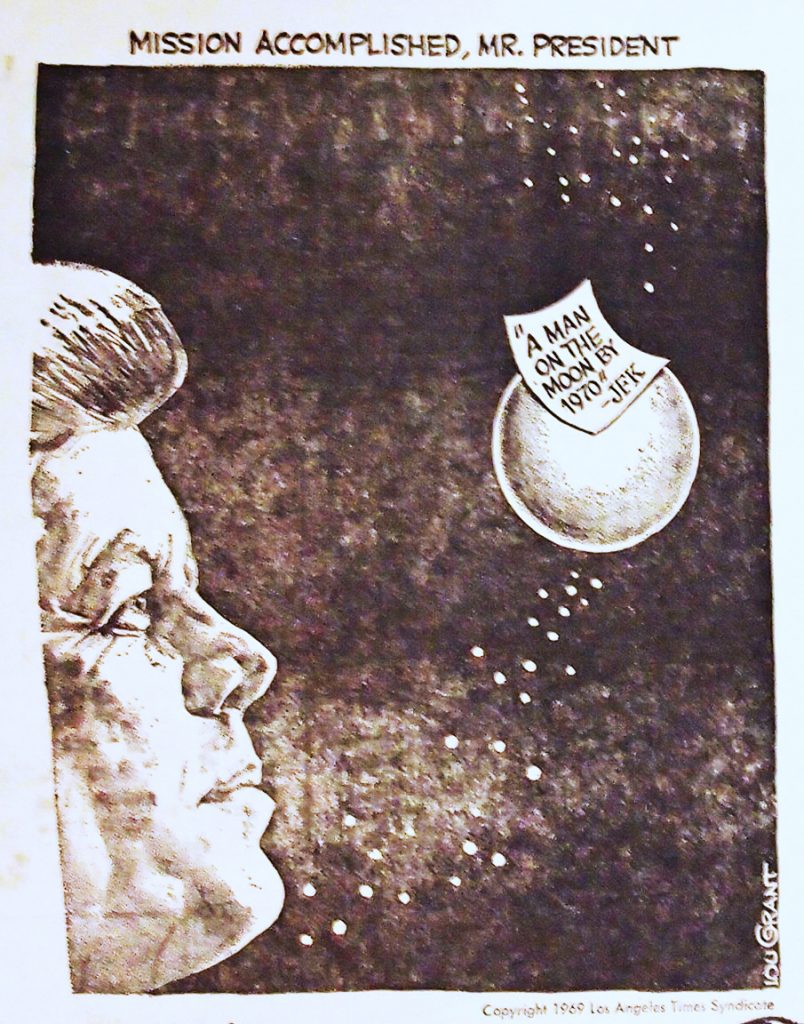Before a joint session of Congress on May 25, 1961, President John F. Kennedy made this proposal:
“I believe that this nation should commit itself to achieving the goal, before this decade is out, of landing a man on the moon and returning him safely to the Earth. No single space project in this period will be more impressive to mankind, or more important for the long-range exploration of space; and none will be so difficult or expensive to accomplish.”
At Rice Stadium in Houston, Texas on September 12, 1962, he said:
“We choose to go to the Moon! We choose to go to the Moon…We choose to go to the Moon in this decade and do the other things, not because they are easy, but because they are hard; because that goal will serve to organize and measure the best of our energies and skills, because that challenge is one that we are willing to accept, one we are unwilling to postpone, and one we intend to win, and the others, too.”
These are some of his remarks about the challenge to go to the Moon on November 21, 1963, the day before he was assassinated in Dallas:
“Frank O’Connor, the Irish writer, tells in one of his books how, as a boy, he and his friends would make their way across the countryside, and when they came to an orchard wall that seemed too high and too doubtful to try and too difficult to permit their voyage to continue, they took off their hats and tossed them over the wall–and then they had no choice but to follow them.
“This Nation has tossed its cap over the wall of space, and we have no choice but to follow it. Whatever the difficulties, they will be overcome.”
They were overcome and Kennedy’s challenge was met.
Before the decade was out, on July 20, 1969–with over 530 million people watching from Planet Earth–the Lunar Module ‘Eagle’ carrying astronauts Neil Armstrong and Buzz Aldrin landed at 4:17 p.m. EDT.
At 4:18 p.m. Armstrong said:
“Houston, Tranquility Base here. The Eagle has landed.”
Attached to the ladder on the descent stage of the Lunar Module was a plaque with this inscription:
“Here men from the planet Earth first set foot upon the Moon July 1969, A.D. We came in peace for all mankind”
Later, at 10:56 p.m. Armstrong stepped onto the Moon surface and said:
“That’s one small step for man, one giant leap for mankind.”
Aldrin joined him about 19 minutes later, and together they spent a little over 2 hours on the Moon.
They returned to the Lunar Module at about 1:10 a.m. EDT July 21st.
If someone had to pick a date to start counting from as the dawn of a new era, July 20, 1969 is a worthy choice to consider.
The ‘political cartoon’ that appeared in the paper I have from the next day I thought was especially poignant.